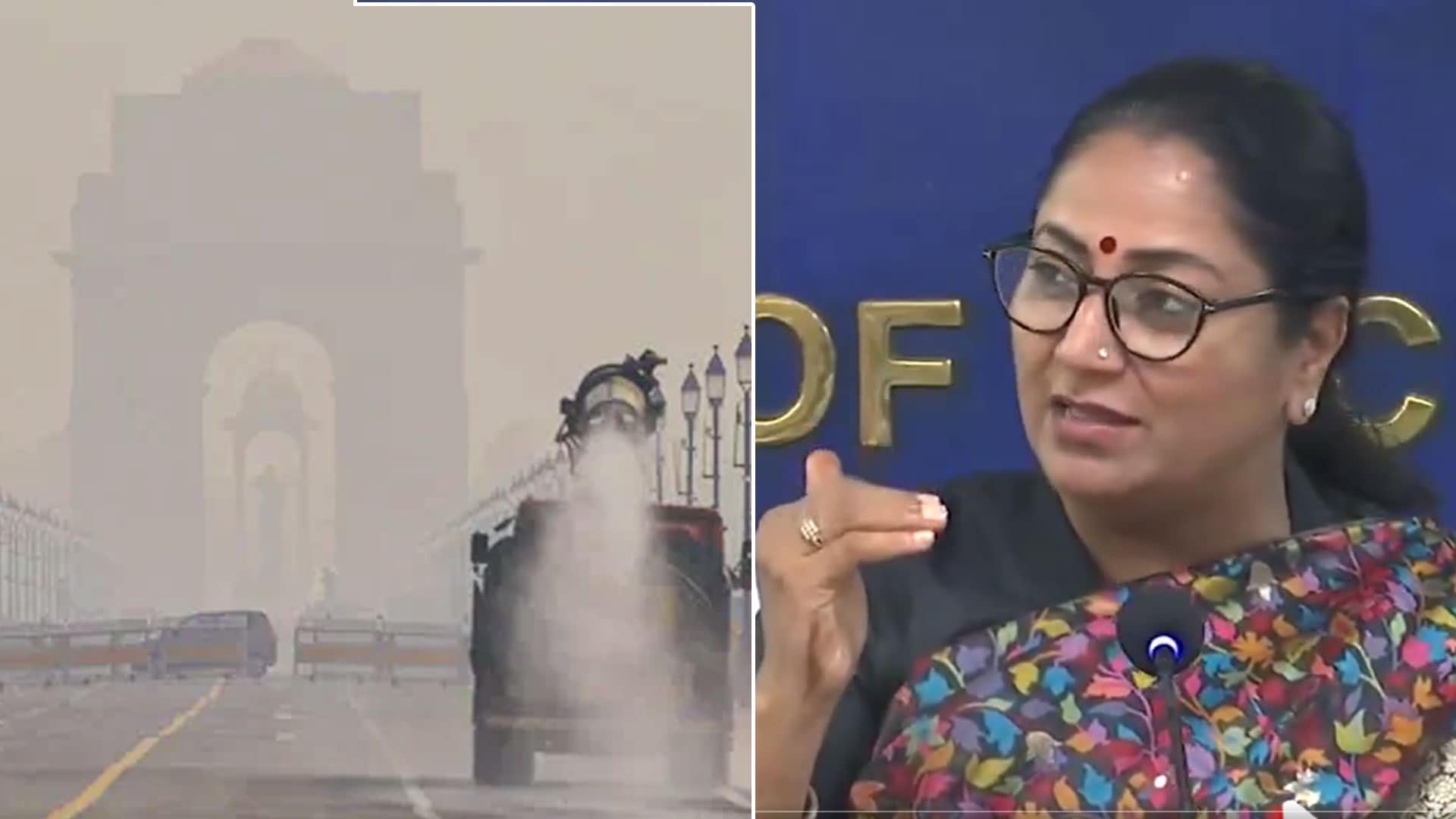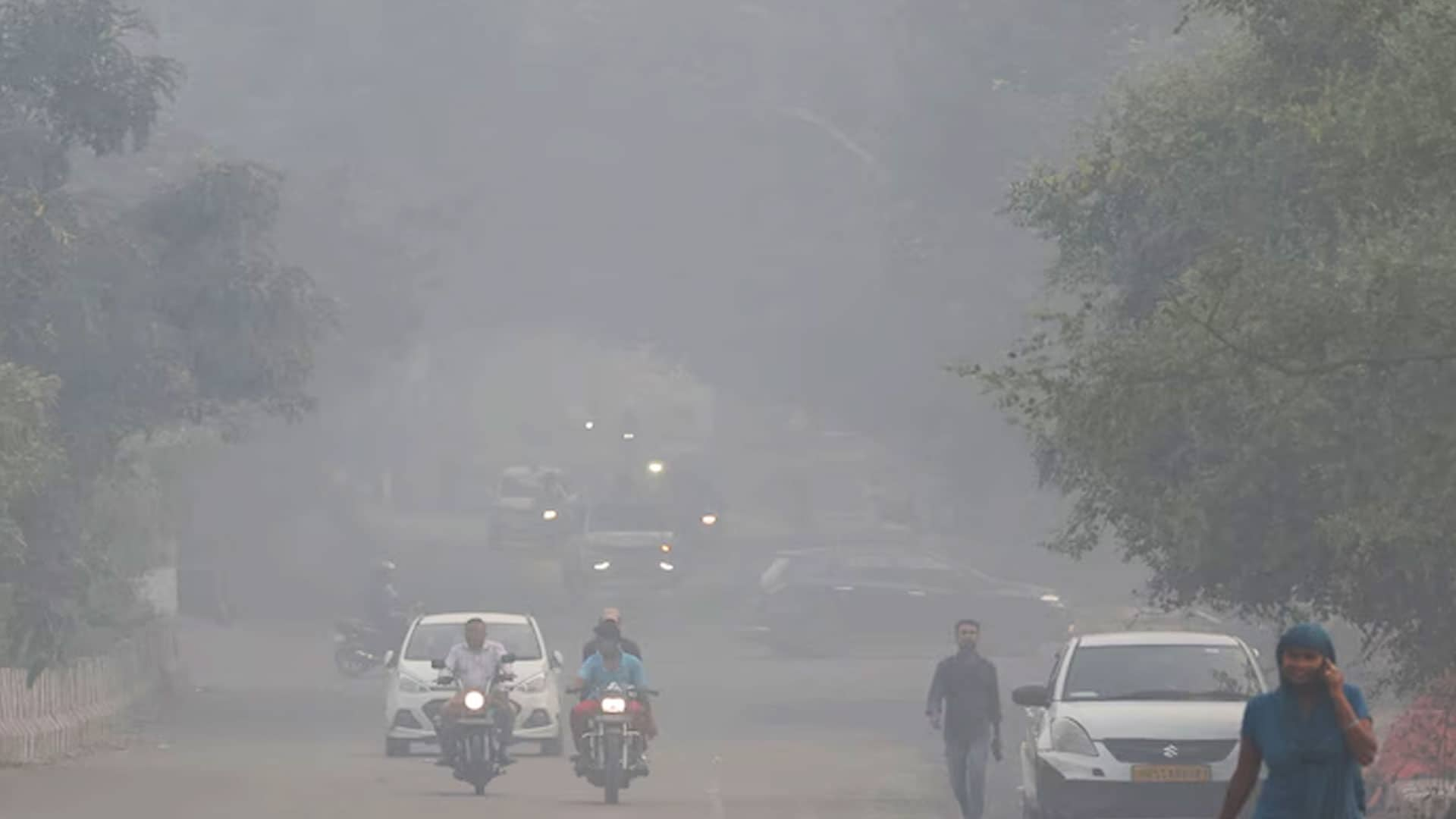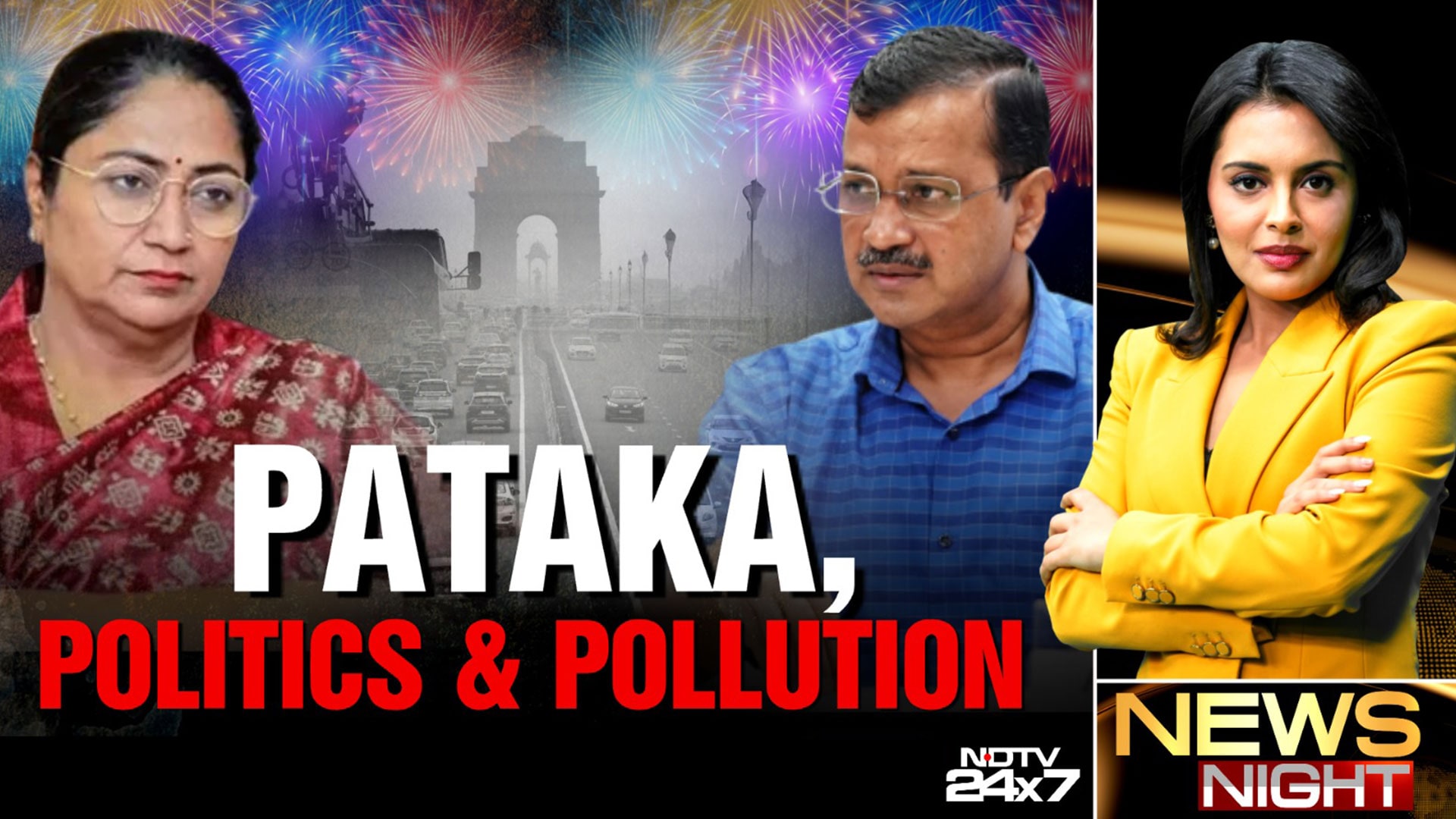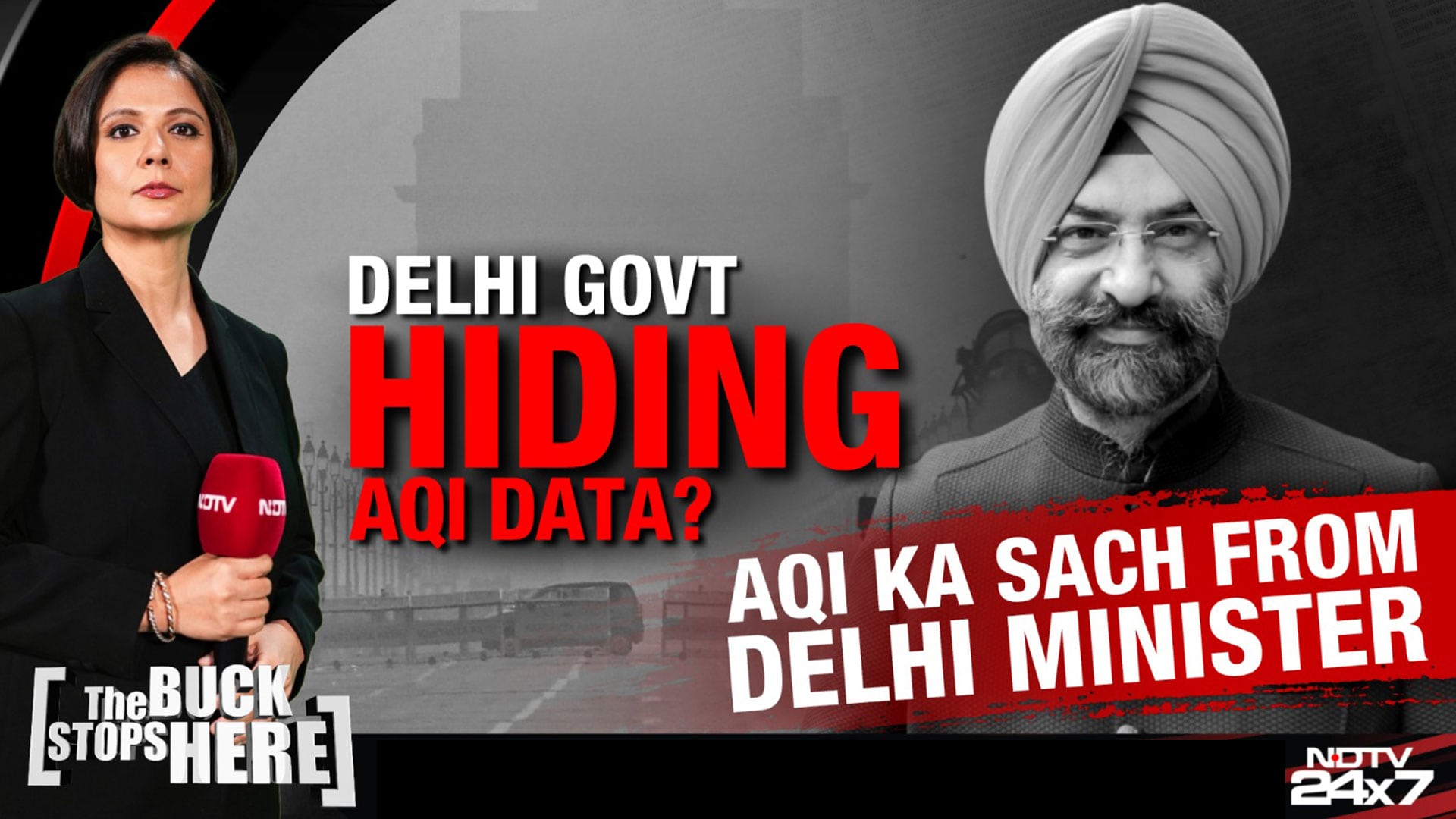- Home/
- Delhi's Air Quality Turns "Very Poor" Again, Will Worsen Further: Forecast
Delhi's Air Quality Turns "Very Poor" Again, Will Worsen Further: Forecast
Delhi's air quality deteriorated to the "very poor" category today, and is predicted to worsen further due to unfavourable meteorological conditions, according to weather monitoring agencies.
The city's average Air Quality Index (AQI) stood at 301 at 12 noon, worsening from 261 on Friday, according to the Central Pollution Control Board.
The AQI was 286 in neighbouring Ghaziabad, 268 in Faridabad, 248 in Gurugram, 284 in Noida, and 349 in Greater Noida.
An AQI between zero and 50 is considered 'good', 51 to 100 'satisfactory', 101 to 200 'moderate', 201 to 300 'poor', 301 to 400 'very poor', and 401 to 500 'severe'.
According to the Centre's Air Quality Early Warning System for Delhi, the city's air quality deteriorated to the 'very poor' category due to slow wind speed at night and a dip in temperatures.
The air quality is expected to remain very poor till the end of the month, it said.
Unfavourable meteorological conditions and a cocktail of emissions from firecrackers and paddy straw burning, in addition to local sources of pollution, push Delhi-NCR's air quality to hazardous levels during winter.
According to an analysis conducted by the Delhi Pollution Control Committee, the capital experiences peak pollution from November 1 to November 15 when stubble burning incidents in Punjab and Haryana peak.
While Delhi is facing a sharp decline in air quality in the coming days, crucial data that helped the government prepare a strategy to mitigate the air pollution problem is missing.
The Ministry of Earth Sciences' System of Air Quality and Weather Forecasting and Research, which provided data about the contribution of smoke from farm fires to Delhi's air pollution, has not been providing updates, and associated officials are unaware of the reason.
"We are not aware of why updates on the SAFAR portal have stopped," said an official at the Indian Institute of Tropical Meteorology, which operates the website. Similarly, data from the Decision Support System, a numerical model-based framework capable of identifying sources of particulate matter pollution in Delhi, isn't accessible to the general public anymore.
Recently, Delhi Environment Minister Gopal Rai said the city government's study to determine pollution sources in the national capital has been halted "unilaterally and arbitrarily" on the orders of DPCC Chairman Ashwani Kumar.
The Delhi government had last month launched a 15-point action plan to mitigate air pollution in the capital during the winter season, with a strong emphasis on addressing dust pollution, vehicular emissions, and the open burning of garbage.
Special drives to check dust, vehicular and industrial pollution are already underway in the city.
In keeping with the practice of the last three years, Delhi had last month announced a comprehensive ban on the manufacture, storage, sale, and use of firecrackers within the city.
A public awareness campaign, 'Patakhe Nahi Diye Jalao,' will soon be reintroduced to discourage firecracker burning.
The government has also prepared a pollution mitigation plan for each of the 13 identified pollution hotspots -- Narela, Bawana, Mundka, Wazirpur, Rohini, R K Puram, Okhla, Jahangirpuri, Anand Vihar, Punjabi Bagh, Mayapuri, Dwarka.
Rai recently said the government has identified eight more pollution hotspots in addition to the existing 13 in the national capital and special teams will be deployed there to check pollution sources.
He said the government has also decided to use suppressant powder to prevent dust pollution in the city.
Dust suppressants could include chemical agents like calcium chloride, magnesium chloride, lignosulfonates and various polymers. These chemicals work by attracting and binding fine dust particles together, making them too heavy to become airborne.
(Except for the headline, this story has not been edited by NDTV staff and is published from a syndicated feed.)
Latest Stories
- Press Trust of India | Wednesday October 22, 2025 , New Delhi
Delhi's much-awaited artificial rain experiment, initially postponed in July continues to be on hold, with no green light yet for the trial that was expected to take place after Diwali.
- Written by Tanmaya Kothari , Edited by Shubham Bhatnagar | Wednesday October 22, 2025
In a time when post-Diwali smog still clouds much of the country, these destinations offer hope - and a reminder that clear skies and fresh air are not luxuries but the new markers of good living.
- Written by Aastha Ahuja | Wednesday October 22, 2025 , New Delhi
Both CPCB and IQAir follow different methods of calculating air quality index, resulting in different numbers.
- Written by Varsha Vats | Wednesday October 22, 2025
Poor air quality is linked to a range of health issues, including respiratory problems, cardiovascular diseases, and aggravated asthma.
- Written by Varsha Vats | Wednesday October 22, 2025
The impact of high air pollution on the eyes is significant. Exposure to pollutants like particulate matter (PM2.5), nitrogen dioxide (NO2), and sulfur dioxide (SO2) can lead to a range of eye problems.
................................ Advertisement ................................
Latest Videos
Opinion
Opinion | Why Indians Have Just Given Up On Air Pollution CrisisTanushree Ganguly
Friday December 20, 2024While some may argue that people in Delhi are now more aware of air pollution than they were a decade back, my rebuttal would be that awareness does not mean that people are concerned.
Opinion | You Must Outrage Over Filthy Air More Than Once A YearJyoti Pande Lavakare
Tuesday December 10, 2024Delhi welcomed us with monsoon rains and mangos. We were home. Fast forward a couple of years, in the winter of 2012, I found myself in denial about something other parents, mostly expats, were calling toxic air.
Opinion | Delhi's Air Pollution Situation Is Like A Bad MarriageNishtha Gautam
Friday November 22, 2024On a good day, such as today, the AQI reading in Delhi is 407. We are jubilant at the sickly sunshine trickling through the slightly dissipated smog. At least its not 1600.
दिवाली... पराली... सियासी जुगाली!Ashwini kumar
Monday November 18, 2024दिल्ली-एनसीआर में प्रदूषण का समाधान तो आज तक मिला नहीं. हर साल चिंतित होकर हम-आप सांसों की तकलीफ के साथ-साथ दिल और ब्लड प्रेशर के मरीज भी क्यों बनें?
घर में कैद बुजुर्ग और हांफते लोग, दिल्ली की सांसों में घुला ये कैसा रोग?Nidhi Kulpati
Friday November 08, 2024हमारी हवा जहरीली हो रही है. गुरुवार की शाम को जब मैं इस मुद्दे पर लिखने बैठी तो AQI लगातार 400 पार जाकर दम घोंट रहा था. बहुत लोगों को यह मामला बोरिंग लगे, लेकिन जब आप अपने साथ काम करने वालों को खांसते-हांफते देखते-सुनते हैं, तो चिंता होने लगती है. सुबह उठते ही दरवाजे खिड़कियां खोलने के लिए डॉक्टर मना कर रहे हैं. बड़े बुजुर्गों के लिए तो मॉर्निंग वॉक बाहर की दुनिया से सीधे संपर्क का ज़रिया है, लेकिन डॉक्टर इसकी भी मनाही कर रहे हैं.


















